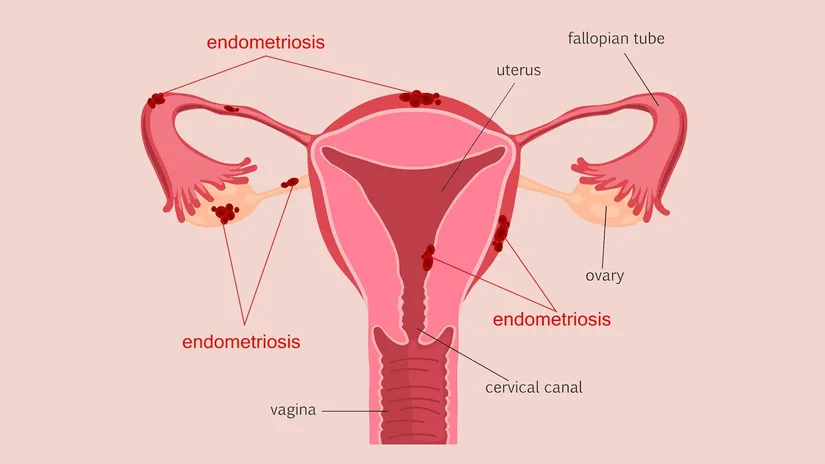Progesterone is a hormone that is secreted regularly every month in women and prepares the uterus for pregnancy. Progesterone levels rise within a day or two from the second half of the menstrual cycle and then fall again with menstrual bleeding. The pills that women use as a method of birth control are synthetic forms of progesterone.
Progesterone, a sex hormone secreted by the ovaries, is produced during ovulation under the control of luteinizing hormone secreted from the anterior pituitary gland. Progesterone thickens the endometrium (uterine lining) to help the embryo, or fertilized egg, attach to the uterine wall. However, if the egg is not fertilized within the appropriate time, the body reduces progesterone production, and the uterine lining breaks down and is shed, resulting in menstruation (menstrual bleeding).
Once the embryo attaches to the uterine wall, the ovary produces progesterone for eight weeks. After the first eight weeks, and for the remainder of the pregnancy, the placenta takes over progesterone production.
What is a progesterone test? What is it used for?
A progesterone test is a type of test performed to measure and examine the level of the progesterone hormone. The test, which is done along with a blood test, determines whether ovulation has occurred in the uterus. If the test result is 10 ng/mg or higher, it means ovulation has occurred. Progesterone tests also play an important role in diagnosing conditions such as infertility and luteal phase defects.
In what situations should progesterone medications (progestin) be used?
Progesterone medications are used in the treatment of miscarriage during pregnancy, habitual abortion, preterm labor (premature birth) prophylaxis, infertility treatment in conjunction with IVF (in-vitro fertilization) treatments, and the treatment of menstrual irregularities. Additionally, progesterone medications may be used in PCOS (Polycystic Ovary Syndrome), endometrial hyperplasia, catamenial epilepsy, and to delay menstruation.








